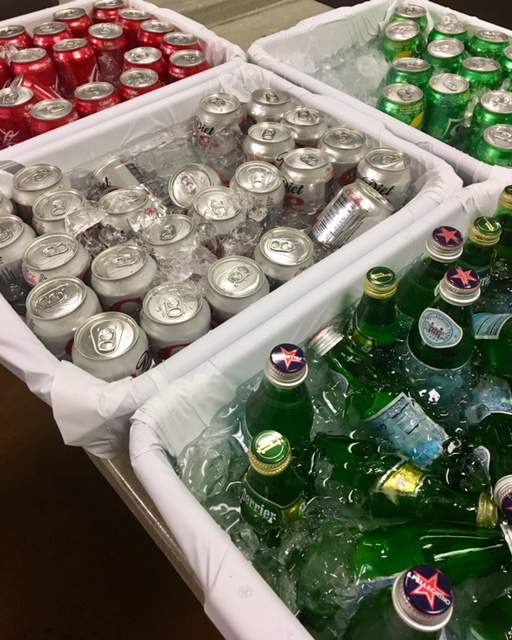WEST HOLLYWOOD, CA – Along the ever-gentrifying Melrose Avenue – not far from the Marc Jacobs, Vivienne Westwood and Alexander McQueen boutiques – a new addiction treatment facility has opened for business.
Its distinction? Pride Recovery Los Angeles (PRLA) is operated and staffed by LGBTQs for LGBTQ patients seeking treatment for any number of addictive behaviors.
Sex addiction? Yeah, they can help with that.
Alocholism? Uh-huh.
Drug addiction, such as dependence on crystal meth? You bet.
At the new program’s early evening open house Larry Hymes, clinical director of PRLA, looked around the lobby, seeing attendees drinking small bottles of Pellegrino and cans of Diet Coke, and said, “It’s just great to hear so many people affirming what we are doing.”
He meant potential partnership entities, both those with the power to refer patients to programs like his, such as therapists, nonprofits and other treatment centers, as well as those who can house his clients, such as sober living facilities. PRLA is outpatient only, just one of a number of factors distinguishing it from other addiction treatment programs in Los Angeles.
Three thirty-something male staff members, who work in operations for one of those sober living homes, the luxurious Westwind Recovery Residencies just south of West Hollywood on San Vicente Boulevard, said they were at the open house because “a gay-run treatment center is unique.” They wanted to check out PRLA as a number of their residents will now attend the LGBTQ program.
Westwind, mostly owned and operated by LGBTQs, is one of two investors in PRLA, along with Bel Air Treatment. Zachary Ament of Westwind said, "Throughout the years of working with the LGBTQ population, we became increasingly aware of the need" for a facility like PRLA.
Stasie Kardashian owns and operates the intervention centers Kardashian Addiction Services and Lifeline Interventions. Seated on beige and brown upscale patio furniture on PRLA’s above-the-street outdoor space overlooking Melrose, she was there because a treatment center for gay people, created by gay people is unusual.
Highlighting experiences she had known of personally, being in the addiction recovery field for so many years, she said, “It’s important for LGBTQ people in recovery to be treated by LGBTQ people.” “They understand. They know about the issues facing someone who comes to them for help.”
Kardashian cited a case she was personally familiar with where an HIV-positive male patient with an active sex addiction was placed in a dorm room with another male patient whom it was inappropriate for him to be roomed with. “They just didn’t get it,” she explained, referring to the non-LGBTQ treatment center not experienced with the unique needs of LGBTQ addicts.
West Hollywood City Councilman John Duran showed up to support PRLA. “On November 5,” he told me, “I’ll be sober for 21 years.” So the political is personal, at least for him.
PRLA has actually been seeing clients for nearly four weeks. Matthew Bianchi, outreach and admissions coordinator, who had just picked up a mini cupcake with rainbow glitter on it, said, “We actually have 22 people in treatment already.”
Able to treat up to 60 people simultaneously, PRLA offers three treatment programs: a Monday through Friday full-day program lasting six hours per day, half-day programs also five days a week, and a twice a week outpatient program designed for clients with some recovery under their belt.
(NOTE: this story was amended on October 27, 2017. The prior version reported PRLA is exclusively owned by LGBTQ people.)
###





